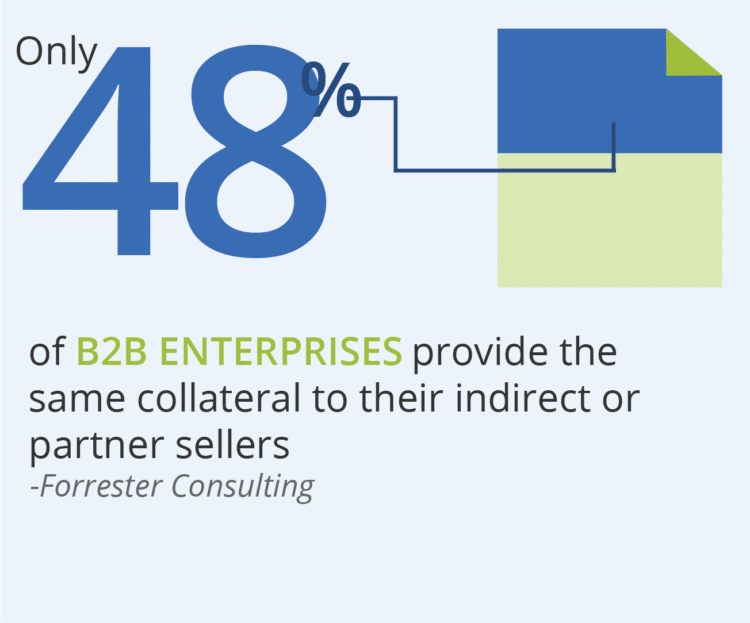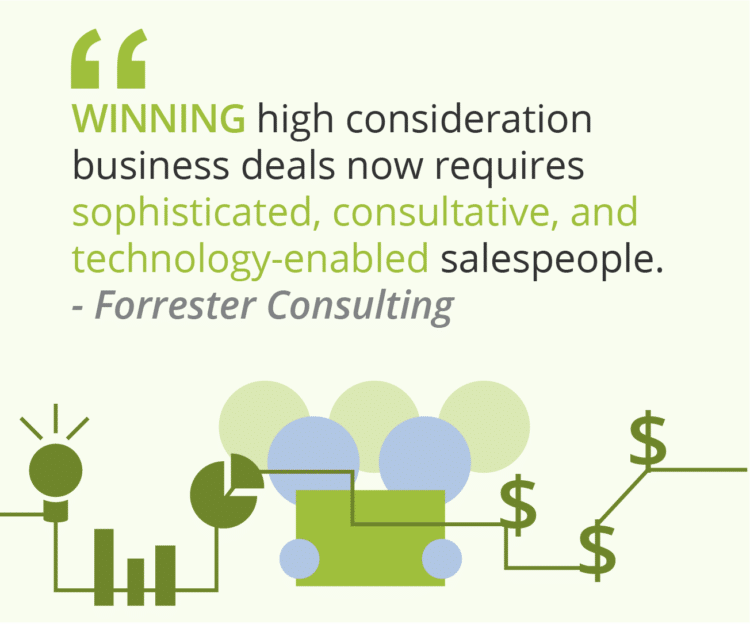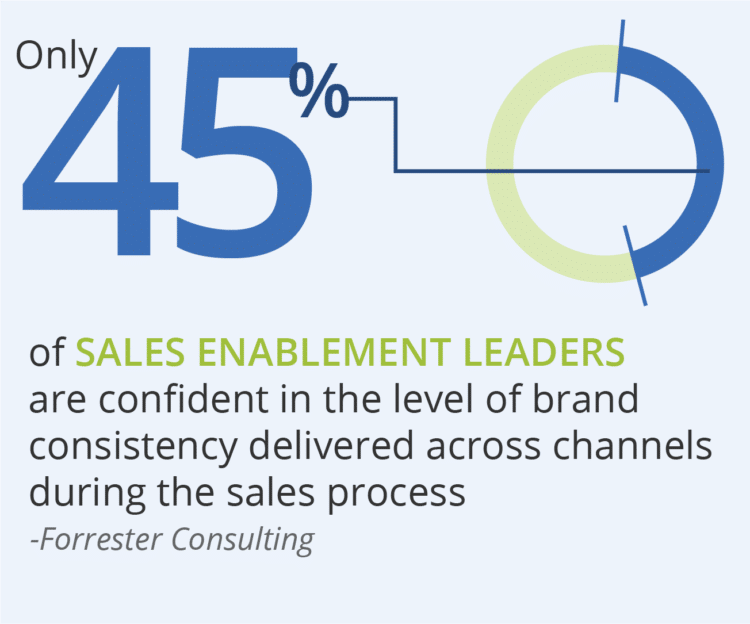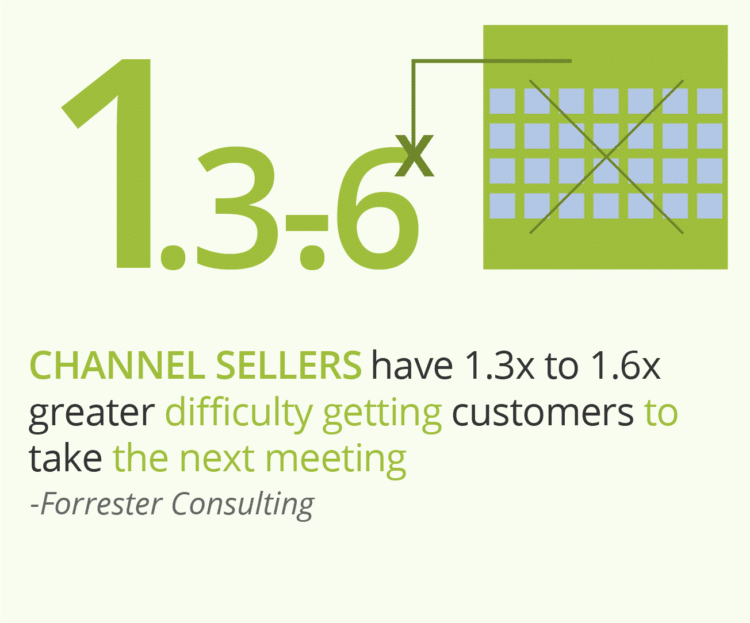If you’re a CPG or Manufacturing company, you’ve likely noticed your buyer has changed. They’re increasingly digital, reading about products and services online, and engaging with your sales reps later in the buying process than you’d probably like to admit. When that first human sales interaction happens, they’re expecting more than a static sales deck with information they’ve already found on their own. They’re expecting someone to make their decision an easy one – for a seller to differentiate themself and their offering by effectively communicating the value the solution will bring to the buyer’s business. How will it impact their average order value? Increase their ability to cross-sell? Help them hit their revenue targets?
To win, modern sellers need to be prepared to lead these consultative, value-driven sales discussions with real-time data and insights. And while many companies are beginning to recognize this need and equip their direct sellers with the sales enablement technology and training necessary to succeed, there remains a staggering gap in resources for indirect sellers.

Yes, you read that right. A vast majority of B2B enterprises are putting themselves at a competitive disadvantage by intentionally neglecting to equip a portion of their sales force with the tools they need to win deals. Meanwhile, companies that elect to offer their channel sales teams the same sales enablement platforms offered to their direct sellers are up to 2.3x more effective at achieving their sales goals and report 1.4x higher revenue growth.
The bottom line? Implementing a robust sales enablement technology for both your direct and indirect sellers pays off. Here’s why:

According to the Forrester Consulting study, “Winning high consideration business deals now requires sophisticated, consultative, and technology-abled salespeople.” Digital-first buyers are demanding, and B2B companies need to transform their sales processes across all channels to meet their high expectations. Companies seeking to drive growth by enhancing the sales experience and deepening customer relationships can and should implement a sales enablement technology that incorporates interactive sales tools like ROI and TCO calculators, dynamic content, and machine learning into the platform to help their sales reps cultivate a more personalized and insights-based sales experience that resonates with buyers. Companies that supply sales enablement platforms to partners are 1.5x more likely to report an increase in customer lifetime value, 1.4x more likely to report an increase in average order values, and 2.1x more likely to see an increase in customer references.

CPG and Manufacturing firms rely on partner sales representatives to communicate their brand proposition, but how many of these companies actually understand what that experience looks like for their buyer? Is it consistent with the messaging your direct sellers have been coached to communicate? In the study commissioned by Mediafly, Forrester Consulting found that less than half of Sales Enablement leaders (45%) are confident in the level of brand consistency delivered across channels during the sales process. The study also revealed CPG industry respondents have the least visibility into the sales process, with 21% of respondents knowing too little to even evaluate the consistency of B2B buyer experiences.
With a sales enablement technology in place, B2B companies can rest assured that all sellers with access to the platform can accurately represent the brand with the most up-to-date and relevant content. Integrating the platform you choose with your CRM enables you to capture the content presented in meetings to better understand what is being used and the impact it has on sales performance. With built-in machine learning capabilities, a sales enablement platform can automatically recognize that a meeting has taken place and duplicate data in the appropriate CRM record, offering you a deeper look at how that content correlates to revenue. As a result, companies with a sales enablement technology in place can forecast more accurately and are 2.3x more effective at achieving their sales goals.

Indirect sellers have a harder time advancing sales than direct sellers do thanks to limited content, training, and access to technology. The Forrester study found that channel sellers have 1.3x to 1.6x greater difficulty getting customers to take the next meeting and also struggle to engage higher-level stakeholders in meetings. Implementing a sales enablement technology can level the playing field between direct and indirect sellers and increase the likelihood that a channel seller will effectively sell your product in a crowded and competitive marketplace. In fact, partners with access to interactive sales tools including health assessments or calculators that capture the buyer’s input in real-time and help the seller to guide more personalized discussions find it twice as easy to accelerate deal closure and 1.8x as easy to get high-level stakeholders involved in sales discussions.
For more information on the benefits of enabling your indirect channel, download the full paper, “It’s Time to Enable Your Channel Sellers for Evolved Selling”.
Source: “It’s Time to Enable Your Channel Sellers for Evolved Selling”, a commissioned study conducted by Forrester Consulting on behalf of Mediafly, July 2018.

Comments are closed.